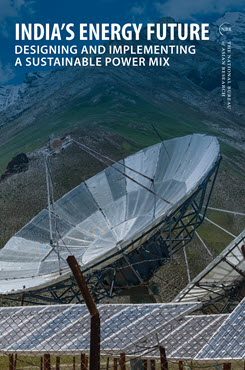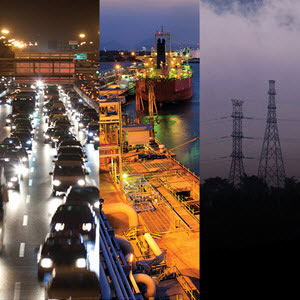The Geopolitics of India’s Power Sector
This essay highlights the geopolitical factors that both hinder and help India’s efforts to strengthen its electricity sector and discusses how India can leverage its bilateral and regional relationships to achieve its electricity needs.
EXECUTIVE SUMMARY
MAIN ARGUMENT
Although its energy mix is heavily dependent on imported fuels, India has the capacity to export power. However, the country’s regional energy diplomacy is hampered by a poorly integrated region, diplomatic tensions with some of its neighbors, a worsening rivalry with China, and a lack of access to Afghanistan and Central Asia. Fortunately, India can find workarounds for these challenges by capitalizing on its growing energy relationship with the U.S. and deepening its engagement with two key regional organizations—the Bay of Bengal Initiative for Multisectoral Technical and Economic Cooperation (BIMSTEC) and the Quad.
POLICY IMPLICATIONS
- India’s capacity to achieve a more secure and diverse electricity mix will be enhanced by better relations with its neighbors and stronger regional institutions.
- Efforts pursued abroad to strengthen India’s electricity sector can also help advance broader foreign policy objectives. These goals include strengthening multilateralism and pursuing strategic autonomy, a form of statecraft that emphasizes flexibility and freedom of action.
- Any geopolitical successes that help India’s electricity sector can only be sustained if New Delhi addresses the complex challenges existing within the electricity sector itself.
Michael Kugelman is Asia Program Deputy Director and Senior Associate for South Asia at the Wilson Center in Washington, D.C.
NOTE: The author is grateful to former Wilson Center intern Maha Hassan for her research assistance.



 Toward Energy and Climate Security: Pathways and Priorities for Cooperation in 2022
Toward Energy and Climate Security: Pathways and Priorities for Cooperation in 2022
